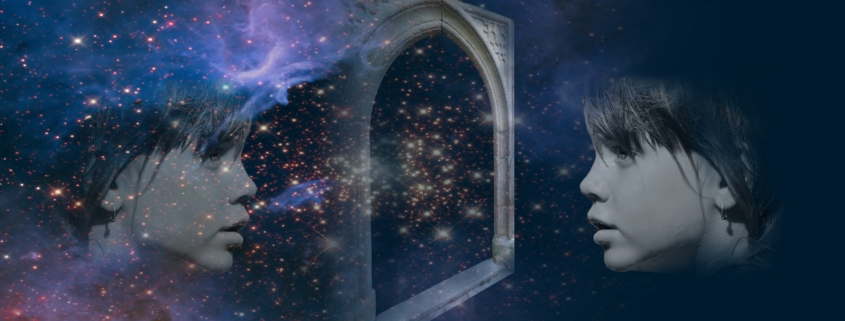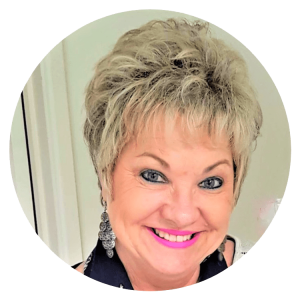In March this year, I was asked by the founder of the website, Children’s Guide to the Unknown, Dr Donna Thomas, to write a guest blog for this webspace. The website focuses on the experiences of children and younger people that are considered ‘unusual’ or ‘out-of-the-ordinary’. These experiences are common for children and the webspace aims to emphasise this; while also providing helpful information and guidance for children, young people and interested adults.
In Donna’s words, “The information children and young people can access is scientific, artistic and cultural, and offers new ways for them to frame and make sense of their experiences. The space has guest supporters such as Elaine Finkelstein, Steve Taylor, Bernardo Kastrup and Rupert Sheldrake – as well as organisations such as The Essentia Foundation, the Institute of Noetic Sciences (IONS) and the International Spiritual Emergence Network”.
My blog was primarily intended for children and younger people, as well as caring adults, but I hope that it is of interest to anyone who visits the website. In order to widen its reach I share it below. At the end of my blog is further information about Dr Donna Thomas, as well as a link to this important website.
∞
It is not unusual for children and younger people to have non-ordinary or mystical experiences. Such experiences may range, for example, from knowing what someone else is thinking or knowing that something is going to happen, through to having friends no one else can see, an out-of-body experience, a near-death experience or a memory of an apparent past-life. If you are a child or young person and feel you have experienced, or are experiencing, something spiritual, mystical or out-of-the-ordinary, you are not alone. Extraordinary experiences occur frequently and many children and young people, just like you, have them. Although the experience may be different to what others are experiencing it probably feels very real to you, and that is what matters. It is important to know that having an unusual experience does not necessarily mean that there is ‘something wrong’, it simply means that you have had an experience that others may find difficult to understand.
Many of these experiences are natural, and children and young people regard some of them as an everyday aspect of their life or a meaningful part of their world. They may describe them as uplifting or enchanting somehow. For others, however, it may not feel this way. Perhaps you feel that your experience was strange, too much to cope with or should be kept hidden. You may find it difficult to talk about. This is perfectly understandable. Some experiences feel too ‘big’ to put into words. Or it may be hard to know who you can turn to or share it with. Perhaps you have tried to share your experience with someone and their response has not been what you needed. When you choose who to share your experience with, choose someone who you feel a deep connection with or are comfortable talking to – someone who you know will want to listen, to understand and to support you, and who you believe will respond with care and kindness.
I spend time with many people who have had unusual experiences such as seeing and hearing a deceased person, perhaps a grandparent, or seeing and hearing a spiritual being, such as an angel, when no one else does. For example, one young girl shared with me that she perceived a very tall, white angel in front of her when she thought she was in danger. She described the angel as immense and powerful, and instinctively felt that the angel was there to protect her. No one else saw this angel but she ‘knew’ that it was real. This was a very positive experience for her and many of these non-ordinary experiences feel this way for those who have them. Another type of experience that people share with me is a near-death experience or, as it is often referred to, NDE. Sometimes this experience occurs when a person is very ill or in an accident. Children and younger people generally share that, during their NDE, they sensed a loving being near them or were surrounded by love, perceived a light or felt they were in a place of safety, felt peaceful and free of any pain they may have had. They may also share that they had an out-of-body experience, that they left their body for a while, and could see things from a different viewpoint.
There are many children and young people who have experienced an NDE and, as is the case with a number of non-ordinary experiences, the experience can make you feel that something has changed. Perhaps you feel overwhelmed by it. For this reason it is best not to bottle everything up inside of you. It is perfectly normal to feel you need a little help after an unusual experience. The right time to share your experience with someone else, and perhaps ask for support, is when you are ready to do so.
If you have had a non-ordinary experience that you feel you want to share, or that you might need help to cope with, why not ask the person you turn to for support to read the few points I have written below. In this way you will help them to help you.
Parents, family members and caring others. You can play a very important role in helping a child or younger person to integrate their non-ordinary experience into their life in a positive and constructive way. Here are a few guidelines to help you in this process:
- In an otherwise healthy child or young person these experiences should be treated, at least initially, as a natural experience even though they are out-of-the-ordinary. If the young one becomes increasingly distressed, however, or you feel unsure about how to help them do not hesitate to seek further support.
- Listen, and listen more. Be patient. Let the child or young person take their time to explain. Sometimes it is hard to find the right words so listen patiently, ask gentle open-ended questions but do not pressure them into giving an answer. Help them to feel safe in sharing their experience with you.
- Reassure the child or young person that you understand what they are sharing with you and that you are willing to hear more in their own time and whenever is best for them. If their experience is a ‘type’ of experience you know little about, make the effort to read up about it and learn about what to expect. It is not uncommon to feel anxious or uncertain about these experiences. Learning more about them will be very helpful for the young person, and you, both now and going forward.
- Keep an open mind and withhold judgement. This is a real experience for the child or young person in the same way that listening to them is a real experience for you.
- If or when necessary, guide the child or young person as to how, or to who, they might consider revealing their experience, if anyone. This will help to prevent damaging judgements from those who do not understand. Sometimes this is not quite as simple as it sounds but it may be worth considering a strategy.
- Help the child or young person through any changes or transformative effects, and support them as they integrate their experience. Stay aware of shifts and changes through the integration process and be proactive.
- Encourage them to discuss the meaning of their experience with you, to reflect on the positive aspects of it and to explore its impact on the way the child or young person thinks about life and the purpose of living. You might be surprised.
- Help them to express the details and impact of their experience in a way that is age appropriate such as, for example, through art work, drawing, writing poetry, music and dance, journaling, acting out/drama or through play.
- As the parent, family member or caregiver remember you are not alone. There are many parents, families and caregivers working through similar situations and there are always professionals you can turn to for help. There are also valuable online resources you can turn to, such as Dr Donna Thomas’ website, https://childrenselfandanomalousexperiences.co.uk/
This time call ‘Life’ is about the ordinary and the extraordinary, two sides of the same coin. The non-ordinary experiences mentioned in this blog rest on the extraordinary side of the coin. When we embrace the whole coin we embrace life and all its facets, the ordinary and the non-ordinary, and in so doing we live life to the full. I hope that for you, and those you love, life will always be full.
∞
More information on Dr Donna Thomas: Donna is an Independent Researcher and holds a Research Fellow position at the University of Central Lancashire, UK. Donna has researched with children and young people for the past 18 years, developing innovative ways to conduct research ‘with’ children and creating children as researcher programmes. Donna’s research interests are self, experience and the nature of reality. The programme of work Donna has developed aims to bring attention to, and challenge conventional ideas about being human and the nature of the world. A key focus is children’s ‘anomalous’ experiences – looking at what they can reveal about who we are.
Donna is interested in bringing about change to how children and young people’s experiences are understood by adults, in response to a current ‘mental health crisis’ for children in the Western World. Donna has published academic and public interest articles and is working with children and young people to bring this information to our younger generation. Her book (co-authored with Dr Deborah Crook) will be published in 2022. The book ‘Self and Subjectivity in Social Research’ aims to develop a fresh way of researching with people. From a different understanding about the mystery of being human and reality. Donna is a professional affiliate of the Galileo Commission, a member of the Centre for Children and Young People’s Participation (UK) and the Scientific and Medical Network. She has presented at the British Psychological Society Transpersonal Section (2018), The Science of Consciousness Conference (2020) and the BPS Consciousness and Experiential Section (2019).
Dr Elaine L Finkelstein is a registered clinical psychologist and a registered occupational psychologist. She is a chartered psychologist (UK) and an associate fellow of the British Psychological Society. Elaine is also the founder of the Transformative End-of-Life Experiences Research Foundation.
The author of this blog is not dispensing medical or psychological advice, or prescribing the use of any technique as a form of treatment for physical, medical or psychological problems. The advice of an independent physician or mental health professional, either directly or indirectly is required for this. The intent of the author is only to offer information of a general nature to help you in your quest for emotional and spiritual well-being. In the event that you use any of the information in this blog for yourself, which is your right, the author assumes no responsibility for your actions.
COPYRIGHT NOTE: The author of this article, Elaine L Finkelstein owns the copyright over this blog and the Trade Marks: Transient-Death Experience, Shared Transition Experience and Nothing to Fear. Dying, Death and Beyond. You may contact her at web@elainefinkelstein.com. Elaine L Finkelstein grants readers permission to copy and distribute this column and distribute it free of charge, provided that copies are distributed for educational and non-profit use, no changes or revisions are made, all copies clearly attribute the article to its author and include its copyright notice and the author’s email address web@elainefinkelstein.com.



Leave a Reply
Want to join the discussion?Feel free to contribute!